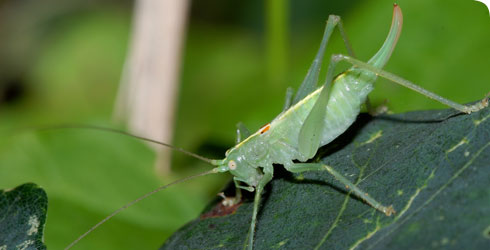Meconema meridionale (southern oak bush-cricket)
The southern oak bush-cricket was originally described from Italy and found in other areas of southern Europe until about 40 years ago, when it was observed to be extending its range northwards.
By the 1990s it was recorded from northern France, Holland and Belgium, and in 2001 the first specimens were recorded in England from Surrey and Berkshire (Hawkins, 2001).
Since then the species has been recorded widely in southern England, with additional records from Essex and Nottinghamshire.
Species detail
-

Taxonomy
Get a description of the appearance and size of the southern oak bush-cricket. Find out about a similar looking species, from which the southern oak bush-cricket is indistinguishable as a young nymph.
-

Distribution and habitat
Meconema meridionale has spread rapidly northwards across Europe in recent years. Discover how this short-winged bush-cricket has travelled.
-

Biology
Bush-crickets are carnivorous and eat other insects. Find out more.
-

Behaviour
Find out how these bush-crickets chirp.
-

References
Get reference material for Meconema meridionale.
Images
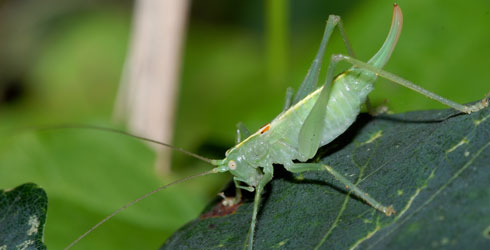
The southern oak bush-cricket (Meconema meridionale)
© Benton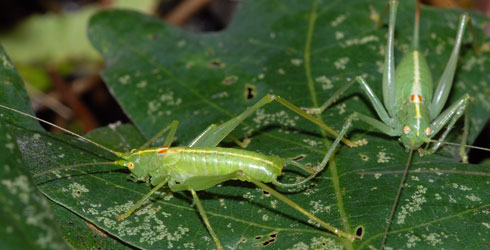
Male (left) and female (right) southern oak bush-crickets showing their pale green colouring with yellow dorsal stripe and the pair of brown marks on back of pronotum.
© Benton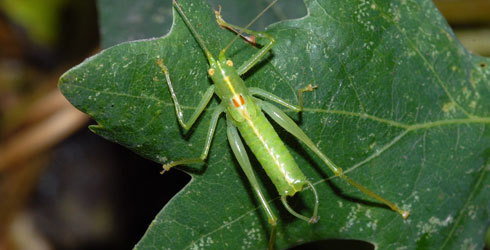
Meconema meridionale is typically found on a wide variety of broad-leaved woodland trees and hedgerow and garden shrubs.
© Benton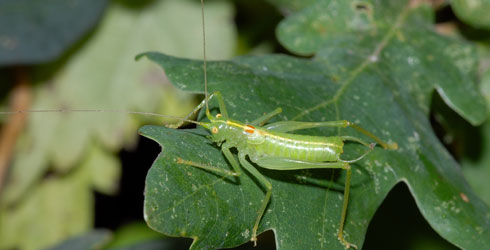
Male Meconema meridionale
© Benton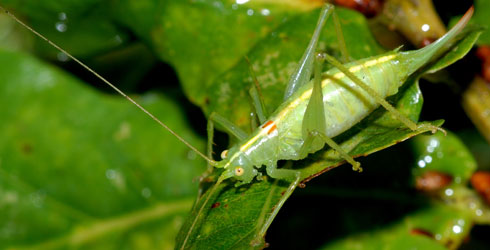
Female Meconema meridionale
© BentonAuthor
Judith Marshall
Scientific Associate, Entomology Department
A word from the author
"The flightless southern oak bush-cricket has in recent years extended its range northwards through Europe. It was first recorded in Surrey in 2001 but is now widespread in southern England, and has the potential to spread much further. As a non-pest species, it is very welcome here!"
Toolbox
Glossary
Brachypterous
Having rudimentary, non-functional wings.
Cerci
Appendages on the rear-most segment.
Macropterous
Having unusually large wings.
Orthopteroids
Insects in the order Orthoptera.
Pronotum
First segment of the thorax.
Spermatophore
Capsule containing spermatozoa that is transferred entirely to the female during mating.
Stridulatory
Grating, chirping or hissing sound produced by rubbing body parts together.
